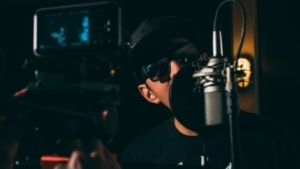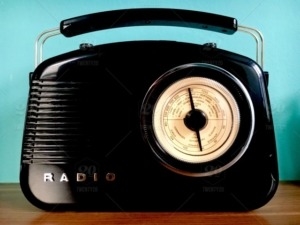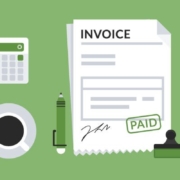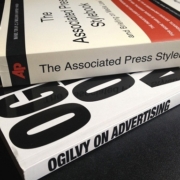Top 10 tips for writing radio commercials
Writing radio commercials can make a refreshing change to the copywriter’s routine. With no pictures to help you get your message across you have to think in a slightly different way but the creative opportunities this opens up can make the job really fun.
Table of Contents
Here are our top 10 tips for copywriting radio commercials that work.
PRE-PRODUCTION
1. Get the basics right
Some things never change. Just as for a print ad there are some basics that you need to get right at the blank sheet of paper stage. First you need to figure out what your USP is. Choose a single benefit and really hone in on it without letting anything else get in the way of that proposition. Then you need to clarify who your target audience is Even more than with a print ad, it helps to literally visualise your target audience and imagine how they might react to hearing your commercial. And you also need to be clear as to what you want them to do at the end. What is your call to action? Call? Visit a website? Or just buy the damn product!?
2. Make it interesting
You’d think this goes without saying. But then you listen to the ads on the radio and your eyes roll in disbelief at the drivel that gets produced. Getting attention on the radio is even harder than with an ad in a magazine because the listener really doesn’t want you to be there. You’re intruding into the programme they want to listen to. Just shouting your key message ain’t gonna work, it’ll just piss people off. Try and reward the listener with something: humour, surprise or simply something interesting to hear.
3. Try ‘top & tailing’
One classic approach to writing radio commercials is the ‘top & tail’ structure. Start with some scenario with one, two or more actors conveying the benefit of your product in a dramatic way. Then have an additional voice say the call to action. And finish by returning to the little playlet with some kind of punchline. I say ‘classic approach’ which, of course, could drift very easily into ‘hackneyed approach’ but if you make your scenario sufficiently believable (or, at the other extreme, totally absurd and tongue in cheek) then this way is a good way to go.
4. Get your timings right
Radio commercial slots come in a variety of lengths. Typically you ‘ll be looking at 30 seconds but it all depends how flexible the radio station is and how deep the client’s pockets are. As the writer it’s your responsibility to make sure what you write fits the time slot precisely. So read it out loud with a stopwatch. Get others to help you (when you read your own words you’ll tend to go too fast because you already know what’s coming next!) If there are disclaimers at the end (the legal stuff that some products have to state) then you may have to cut back your own copy to accommodate them. A professional voiceover artist will be able to read them much quicker than the average person but they still use up precious seconds.
5. Be strict with yourself
With only thirty seconds to play with (and less if there’s that pesky disclaimer to squeeze in) you’ve got to make every word count. Be brutally strict and strike out any words that don’t absolutely definitely have to be there. And, in general, don’t try to say too much: you’ve got one key benefit to express so just concentrate on that and don’t get side tracked by anything else . Above all, remember that you have the luxury of sound effects. Using these creatively means you can dramatically cut down on the number of words you use sound to paint a picture in people’s heads.
PRODUCTION
6. Choose your voiceover artist with care
First of all, don’t even think of doing the voice recording yourself. There are professional voiceover people for a reason: they sound good! A good one can also add a lot to your script by wringing out a little bit more emotion or by pulling off a gag with perfect comic timing. But not all voiceover guys/girls are the same. You need to study their résumés carefully to see what they specialise in. And, of course, you need to get some samples of what they’ve done before to make sure they are going to match your needs.
7. Make friends with the sound engineer
The guy behind the knobs in the sound studio has seen (and heard) it all. Use his/her experience, don’t be afraid to ask for advice. At the very least you need to brief him/her very thoroughly at the beginning of your recording session to make sure that everyone is singing from the same hymn sheet. S/he’ll have access to thousands of ready-made sound effects so don’t be shy about asking for any crazy sound. Chances are there’s an MP3 of it somewhere.
8. Don’t settle for the first take
By the time you get to the studio you will have been living with your script for many weeks as it crawled along the client approvals process. It’s very tempting to think that the first run through is exactly what you want – it’s what you’ve been hearing in your head all this time. But be critical. Better still, take someone else with you who isn’t as closely involved in the project so they can cast a colder eye over it (yeah, I’m not going to do that gag again). Remember also that you’ve hired this voiceover artist for a full session and they will expect to receive feedback and go over the script a few times. (For some reason a lot of VOAs are right prima donnas but don’t let yourself be intimidated by them. They’re probably sat in their home studio in their pyjamas laughing at how absurdly easy it is to make a hundred quid. So push them till you get exactly what you want.)
9. Use sound imaginatively
It’s very tempting to over-do the sound effects. But step back and ask yourself: “Is that duck quacking really necessary?”. Probably not. Make sure your script is working in harmony with the sound so that each is supporting the other rather than duplicating each other.
10. Make your call to action stand out
The whole purpose of your commercial is to get listeners to do something – usually call a number. If they don’t catch it the whole thing’s been a waste of time. So don’t just stick it at the end. Don’t say it too quickly. If you can, feature it more than once so there’s a bit of “find a pencil” time. Better still, make it a really memorable number that doesn’t need writing down to remember (for a little while at least). It costs a bit more but could multiply your response rate fantastically. “0800 800 800” kind of thing. Alternatively you could make the number into a jingle. Putting a bit of music behind it and giving it a sing-song rhythm will also massively increase recall.









